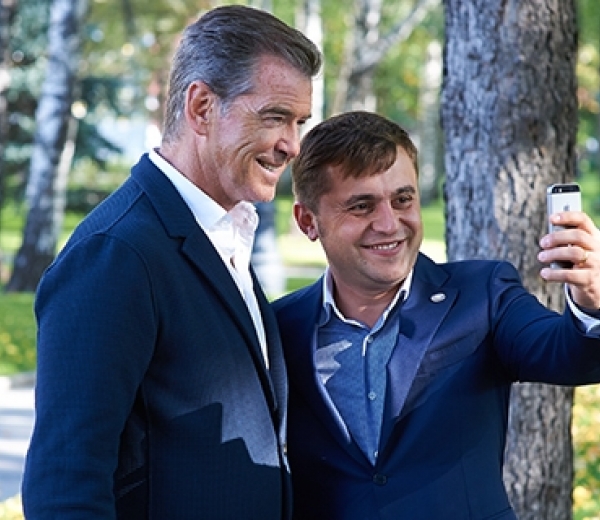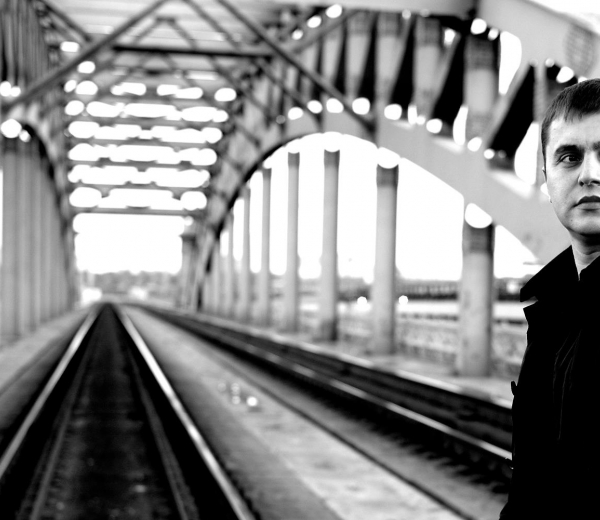Valery Saaryan
Submitted by global publisher on Tue, 06/28/2016 - 20:28
English
Intro:
“Alain Delon agreed to be in our film, and Adrien Brody and Dustin Hoffman.” Valery Saaryan must have repeated these words a thousand times to different people already, but his voice is full of sincere pride. While he passionately talks about the project, his phone rings off the hook. But he’s so engrossed in his tale, he doesn’t answer it, and at some point gives the mobile to his assistant: “Tell them I’m busy.”
Weight:
-9 000
Story elements:
Text:
“Alain Delon agreed to be in our film, and Adrien Brody and Dustin Hoffman.” Valery Saaryan must have repeated these words a thousand times to different people already, but his voice is full of sincere pride. While he passionately talks about the project, his phone rings off the hook. But he’s so engrossed in his tale, he doesn’t answer it, and at some point gives the mobile to his assistant: “Tell them I’m busy.”
Text:
“This will be a totally new perspective on Komitas and on the mystery of his death. Actually, the whole story with his confinement and the lasting silence — it’s a very strange story. We studied archives for many years, all around the world, and I can say conclusively that the great composer did not go mad at the Paris clinic and, till the end of his days, he remained lucid. Overall, there are lots of lies and ambiguities surrounding him. We were always told, for example, that Komitas died from his insanity. In reality, he died from gangrene. In the clinic where he was confined, the patients were given shoes made of wood. Komitas wore them and got blisters that led to gangrene. Antibiotics were a rarity then and very expensive. The doctors actually appealed to the Armenians in France several times: ‘We can save him, just pay for the medicine!’ But all the appeals went unheeded,” says Valery.
Valery Saaryan is well known in Armenia. He is the founder and chief producer of the Armenia Production Company, an honorary member of Armenia’s Academy of Television and Radio and producer of the popular singer Eva Rivas, who represented Armenia in the Eurovision competition.
He’s less known in Russia, although the Armenian diaspora is always abuzz with his name. He was the organizer of the Moscow events in commemoration of the 1700th anniversary of Armenia’s adoption of Christianity, and is behind the majority of Armenian concerts that take place at the Kremlin Palace of the Congresses, including the ceremonies for the Armenian Music Awards and the Tashir Show, the annual awards of Armenian show business.
Image:

Text:
|
Valery Saaryan with Pierce Brosnan |
“My great-grandmother’s story is an amazing story. Her maiden name was Hatun Oganesyan; her husband’s name was Kirakosyan. She was from Muşh. They were four sisters and three brothers. When the Turks came, one of the brothers ran away and the Turks killed the other two. The eldest sister was killed too. And when the Turks started running after the younger ones, my great-grandmother — she was 19 or 20 years old at that time — jumped into a burning tandoor,” Valery remembers.
“The Turks decided that she didn’t survive and left. Some time later, she got out of the tandoor— burned all over. And she probably would’ve died, right there on the spot, but her neighbors, the Kurds, took her in and nursed her back to health.”
“After that, she was able to make it to Georgia. She settled in Batumi. Got married there, had children. Then the whole family returned to Armenia, to Leninakan, and settled in the village of Voskeask. She never kept idle, spent her whole life running the house. She lived for 106 years; she was born in 1889 and she died in 1995,” says Valery. “Sometimes great-grandmother would talk about those events. The things she recounted were terrible. Like when she saw the Turks rip open a pregnant woman’s belly. When she began to tell these scary stories, the adults would quickly take the kids out of the room. We would either be told to go outside or, if it was evening already, to go to bed. The stories she told were very scary.”
“On my father’s side, our ancestors were from Erzurum and there are stories there as well. For example, the stories about my great-grandfather: I didn’t hear them from great-grandfather himself, he died before I was born, unfortunately, but my father told them to me. My great-grandfather, his name was Hagvan, lived in the village of Balaovit. He was a blacksmith. He wasn’t very tall but he was very strong. When the Turks came to the village, they put all of the villagers into a shed — I don’t know, maybe they wanted to burn them later or maybe they wanted to take them away somewhere. They didn’t touch my great-grandfather because they needed a blacksmith for something or other. At night, he killed nine Turkish soldiers who were left behind in the village [to guard the captives] and freed all of his fellow villagers,” Valery says proudly. “Hagvan’s son, my grandfather Derenik, died when he was 76 years old. There was even a book about him that came out in Armenia in the Soviet times; it was called ‘Scout Kid Saaryan.’ He went to the front, was wounded and his leg was amputated, so he was sent home. Six months later, he ran away, back to the front — with one leg. He was sent to be a scout. He finished the war in Berlin, came back, got married to the most beautiful girl, my grandmother, and had six children. In his village of Javakhk he earned great respect because, in the hungry postwar years, he risked his life to help his fellow villagers. He was in charge of the mill and always supplied people with flour or grain or bread.”
“I was the only person who was allowed to do anything in my grandfather’s presence. I was his first grandson, a boy.
He always told me: you can do anything. He didn’t mean that anything was permitted; he meant that I could overcome any difficulty.
For example, I grew up in Russia, went to a Russian school, everyone around me spoke Russian, but whenever I went to Yerevan, he would take me to the bookstores and buy the books by Armenian writers written in Armenian. I would say, ‘Grandpa, but I don’t read Armenian!’ and he would answer: ‘You will learn. You can do it!’ And so I did. And now I speak, read and write in Armenian, fluently. And I bring up my children the same way. I tell them: you can do anything. And you know, they don’t let me down,” Valery concludes.
The story is verified by the 100 LIVES Research Team.
Subtitle:
Founder and chief producer of Armenia Production Company
Story number:
36
Header image:

